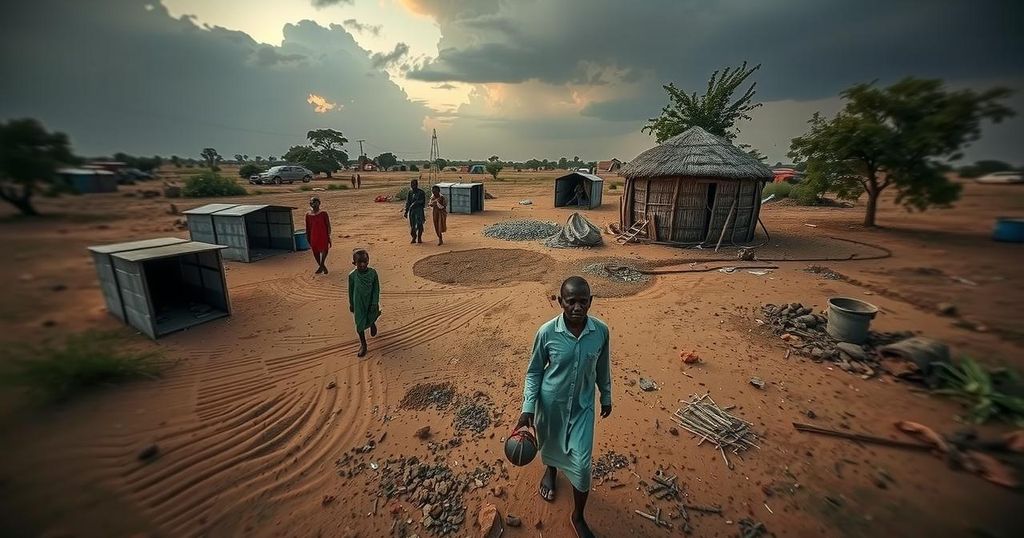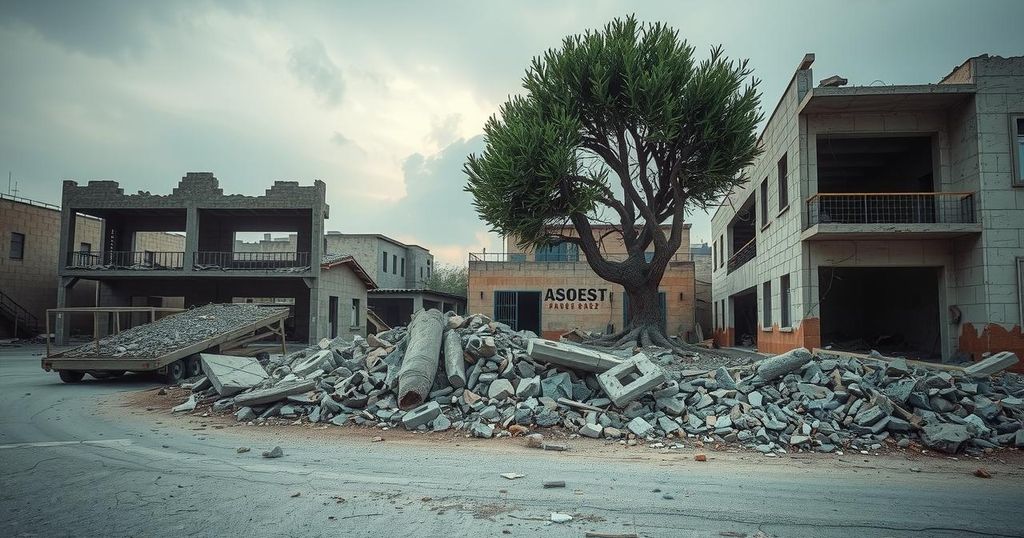UN Confirms Sudan’s Displacement Crisis Amid Rampant Violence and Human Rights Abuses
The civil conflict in Sudan has led to the displacement of over 14 million people, with extensive reports of sexual violence, hunger, and disease. UN agencies have characterized the situation as the largest displacement crisis worldwide this year, highlighting the urgent need for international humanitarian assistance amid alarming atrocities committed by both military factions.
The ongoing civil conflict in Sudan has resulted in the displacement of over 14 million individuals, with rampant hunger, disease, and an alarming prevalence of sexual violence reported. The United Nations’ International Organization for Migration (IOM) has declared this crisis as the largest displacement situation globally this year, emphasizing the severe impact of the conflict on the nation’s population. The violence, predominantly spearheaded by the Rapid Support Forces (RSF) and the Sudanese Armed Forces (SAF), has particularly affected women and children, with a substantial percentage of the displaced being vulnerable demographics. The war erupted in April 2023, following a violent power struggle between the SAF and the RSF, both of which have a history of operating together during the 2019 military coup that deposed former President Omar al-Bashir. The ramifications of this conflict have led to approximately 30 percent of Sudan’s total population fleeing their homes, with dire consequences for their health and wellbeing. IOM Director-General Amy Pope characterized the situation as “catastrophic,” indicating that the humanitarian circumstances necessitate urgent attention Furthermore, a recent report by the UN Independent International Fact-Finding Mission for Sudan outlined astounding rates of sexual violence perpetrated against women and children, while highlighting the lack of safe havens within the country. Reports suggest that both military factions have engaged in grave human rights violations, including sexual violence, abductions, and the exploitation of child soldiers. The findings reveal that these actions may amount to war crimes and crimes against humanity, particularly evident in the tragic events unfolding in Darfur. As the violence persists, the situation exacerbates, with over half of the displaced individuals being women, and a significant portion of the population suffering from acute hunger. UN agencies predict that up to 25 million people could face severe food scarcity by the year’s end. Amid ongoing humanitarian crises aggravated by flooding and displacement, it is paramount that the international community escalates its response to alleviate the suffering of the Sudanese populace. Pope’s appeal to avoid neglecting the plight of Sudan is a crucial call to action for global humanitarian efforts.
The civil war in Sudan has ignited one of the most severe humanitarian crises in recent history, meriting attention from international organizations and humanitarian agencies. The conflict began as a struggle for power between factions within the military, leading to widespread violence and instability. With the country’s infrastructure collapsing, millions have been forced to flee, resulting in immense suffering characterized by malnutrition, disease, and rampant sexual violence. The implications of this war are dire, not only for immediate stability within Sudan but also for regional security and humanitarian efforts.
In summary, the civil conflict in Sudan has precipitated an unprecedented humanitarian disaster, with over 14 million people displaced and suffering from extreme hunger, disease, and sexual violence. The UN’s reports indicate that urgent intervention is required to address the rising number of casualties and alleviate the plight of vulnerable populations. The international response must be escalated to ensure that the needs of Sudan’s war-affected citizens are met and that atrocities do not continue unchecked. The call for peace and humanitarian assistance in Sudan cannot be overlooked, as the consequences of inaction could lead to further regional instability and human suffering.
Original Source: www.aljazeera.com








Post Comment